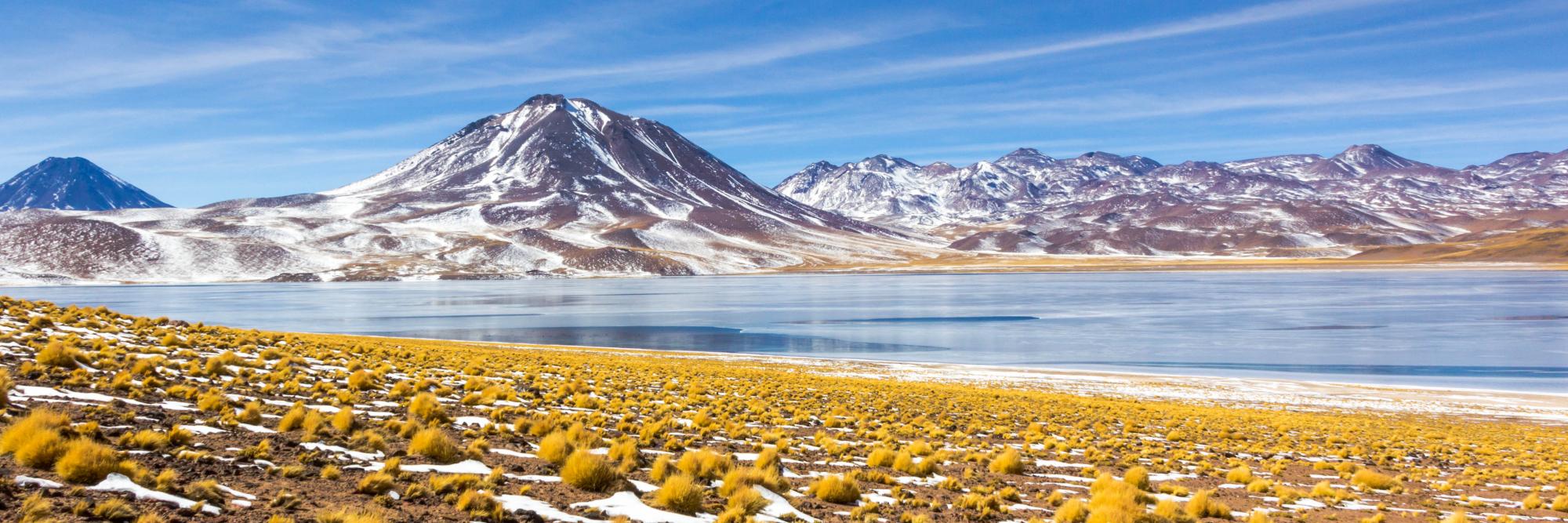Anna Nowak is a psychologist and avid traveller, originally from Poland and currently living in Chile. Having lived as an expat in various countries over the last 12 years, she is a true global citizen. Her experiences with food, nature, and culture all over the world can be read about on her blog, Postcards From The World.
About Anna
Q: Where are you originally from? 
A: I am from Poland.
Q: Where are you living now?
A: At the moment, I am living in Antofagasta, Chile.
Q: When did you move to Chile?
A: 2 years ago.
Q: Did you move to Chile alone or with a spouse/family?
A: A spouse.
Q: Why did you move to Chile?
A: The reason we moved was my partner’s job. I am a psychologist and do voluntary work as a psychotherapist in an organisation for talented children.
Living in Chile
Q: What do you enjoy most about Antofagasta? How would you rate the quality of life compared to Poland?
A: I really enjoy the fruit and veg markets, where I can buy fresh and cheap products. I have lived as an expat for the last 12 years, so it’s difficult to compare to my own country. However, the quality of life here is much lower compared to some of the European places I lived in.
Q: Any negatives? What do you miss most about Poland?
A: I miss food, nice restaurants and cafés, especially on a Sunday. Here there are no cafés open on Sundays; if they are, it is rare. I also miss nice shops and clean streets and green areas in the city.
Q: What are the biggest adjustments you had to make when settling into expat life in Chile? Did you experience any particular elements of culture shock?
A: I am used to travelling and living abroad, so I did not experience a cultural shock. The main aspect of life in Chile I had to adjust to is the physical closeness. You get kissed even by institution workers, and people in the supermarkets stand so close to you that you feel their breathing on your face.
Q: What’s the cost of living compared to Poland? What is cheap or expensive in particular?
A: Living in the north of Chile is expensive. Market food is cheap, but going out to restaurants is rather pricey. I would compare it to the prices in European capitals. Housing is expensive too. Petrol and public transport are cheap.
Q: How would you rate the public transport in Chile? What are the different options? Do you need to own a car?
A: Public transport is cheap. You can use small buses for the price of approximately $0.60, or you can take a colectivo, a taxi car that collects and leaves people on the way that costs around $1. The buses are rather dirty but frequent. You do not need a car if you live in the city. If you stay far away from the centre, you will need a bus or car for everything as there are no shops in many places, especially in the residential areas.
Q: How would you rate the healthcare in Antofagasta? Have you had any particularly good/bad experiences with regard to doctors and hospitals?
A: I do not have any particularly bad experience with healthcare here, but the equipment I have seen is very old. I would recommend looking for a specific doctor and making appointments in advance, as the lines to see good doctors are long. Many locals travel to Santiago for health issues, as they say that the healthcare in Antofagasta is not good and there are no specialists.
Q: What are the biggest safety issues facing expats living in Antofagasta? Are there any areas expats should avoid?
A: The neighbourhoods near the mountains are not recommended for walking around. Also, the centre of the city should be avoided at night. I have heard of some foreigners being assaulted during the day in some places that are considered safe. The locals warn about that, as well as taking buses after dark.
Q: How do you rate the standard of housing in Antofagasta? What different options are available for expats?
A: There are typical blocks of flats and condominiums. Many of them have common swimming pools and/or a gym. The quality of housing that expats tend to use is good. The tap water is not recommended for drinking as it contains arsenic.
Q: Any areas/suburbs you’d recommend for expats to live in?
A: Avenida Brasil or Jardines del Sur (although it is far from the shops and restaurants)
Meeting people and making friends in Chile
Q: How tolerant are the locals of foreigners in Chile? Is there any obvious discrimination against particular religions or women, etc.?
A: The locals are very tolerant of foreigners, especially those from Europe, Australia and the USA. The only signs of discrimination I have seen are against people from some other South American countries. Women are not discriminated against commonly, but are often paid less and not treated professionally in positions that are shared with men, for example as engineers.
Q: Was it easy meeting people and making friends in Antofagasta? How did you go about meeting new people?
A: It was not easy for me to make friends, although I am an open person and lived in other countries where making friends and meeting people have been much easier. Chileans seem to be distant, although it might be different in other parts of the country.
Q: Have you made friends with locals, or do you mix mainly with other expats? What advice would you give to new expats looking to make friends in Chile?
A: I have made friends among locals and other expats. The best way is to join some sport or dance activities such as Zumba or yoga.
Working in Chile
Q: Did you have a problem getting a visa or work permit for Chile? Did you tackle the visa process yourself, or did you enlist the services of an immigration consultant?
A: I have done the process myself, which is long and can get complicated. It involves a lot of paperwork and I would recommend checking the steps of the process with various people or institutions as many official workers gave me the wrong information, and it caused me some trouble.
Q: What’s the economic climate like in Antofagasta? Do you have any tips for expats looking to find a job there?
A: There are jobs for language teachers, university professors and engineers. The mining industry is big here, so people who have experience with that might find a job easily.
Q: How does the work culture in Chile differ from home? Do you have any tips for expats doing business in Chile?
A: It seems that the way the people run businesses is short-term. They aim to get benefits quickly without planning much ahead. This approach is very different to the European approach, so to offer any business to the locals you need to keep that in mind. Foreign products might be popular, especially gadgets.
Family and children in Chile
Q: Did your spouse or partner have problems adjusting to their new home in Chile? Do you think there are any specific challenges for a trailing spouse?
A: I have met a few families with children and the wives decided to go back home after a few months due to lack of activities and places to go to with children.
Q: What are the schools like in Chile?
A: Public schools are of very low standards. Private schools are very expensive and some of them seem to be at the level of typical British public schools.
And finally…
Q: Is there any other advice you would like to offer new expat arrivals in Chile?
A: Take advantage of the landscape and travel as much as you can, although it is not easy from Antofagasta. Life seems to slow down here a bit, and the everyday popular activities I have been doing in Europe are not that easy to be done here. Travelling makes up for that, as Chile has some of the most beautiful landscapes.
~ Interviewed in July 2016



